Quitting these 12 plastic items will make a significant difference whether you are trying to achieve a zero-waste lifestyle, or to simply reduce the waste you send to the landfill. The key is to avoid single-use plastic items altogether. You will be surprised at how much of your waste is reduced if you can manage to avoid these twelve plastic products. After all, every little bit helps.
1.) Toothbrushes
Replace with: A bamboo toothbrush.
Where to buy this:
- Faithful to Nature (Widest range)
- Natural Life (Fun colours)
- The Bear Necessities (Local and affordable)
Everything about this product is biodegradable – the handle, bristles and packaging! It works just like any other toothbrush and lasts just as long. These bamboo toothbrushes are available in adult and child sizes, as well as a bulk pack.
Cost: R40 for a single toothbrush (Buy here).
2.) Fresh Produce Bags
Replace with: Mesh fabric Fresh Bags , and cotton produce bags.
Where to buy this:
- Faithful to Nature (Widest range – FreshBags and fabric shopping bags)
- Natural Life (Thick cotton bags)
- The Bear Necessities (FreshBags)
You can now finally replace those thin plastic bags you use to weigh your fresh produce at the grocery store. Fresh Bags are made of light-weight nylon mesh and are sealed by pulling the coloured ribbon (kinda like a drawstring bag).

You could also use more durable cotton bags to weigh produce at the grocery store, as well as to store produce at home. These cotton produce bags (pictured above) by Natural Life are really affordable, and would look beautiful in the kitchen.
Cost: R70 for two standard size Fresh Bags, and R85 for two large size Fresh Bags (Buy here). R45 for the small size, R55 for the medium size, and R65 for the large size. (Buy here)
3.) Cling wrap
Replace with: Wax Wraps (I use Buzzy Wraps), or fabric Dish Covers.
Where to buy this:
- Wax Wraps: Faithful to Nature (Wide range of colours, designs and vegan options too)
- Fabric Dish Covers: Faithful to Nature
Buzzy Wraps are made out of beeswax, tree resin and jojoba oil infused into hemp and organic cotton cloth. It is fully compostable and can be used to create a relatively airtight seal on food items. It is used in much the same way as cling wrap. I use them to wrap cheese, onion or tomato halves, and to cover the bowls of leftovers etc. They are also available in a variety pack with different sized wraps.
Dish Covers on the other hand are elasticated fabric covers for bowls which are sized to fit, so that you don’t have to protect your dish with cling wrap when it’s time for that bring-and-braai.
Cost: Dish covers cost R125 – R165 each depending on the size. You can also find sets of 3 which range from R195 – R400. 6 Degrees East offer the cheapest beeswax wraps I have found at a cost of R130 for a set of 3, and they offer a vegan wax wrap set made with soy wax, as well as a bees wax set (Buy here). There are many options available in South Africa – browse other brands here.
4.) Ziploc bags
Replace with: Good for the Ground Compostable Film Bags.
Where to buy this:
It looks like plastic, feels like plastic and works like plastic, but it’s not plastic! This packaging is completely compostable and biodegradable. These film bags are made from a starch derivative of corn, sugar cane, straw, wood or other annually renewable resources and will break down in 45 days. Although these bags don’t seal like Ziploc bags, I find that using a peg to close them works perfectly too.
Cost: R20 – R48 for 10 bags (small or large); and R115 for 100 small bags (Buy here).
5.) Plastic Straws
Replace with: Glass, bamboo or stainless steel straws.
Where to buy this:
- Faithful to Nature (Widest range – bamboo, stainless steel and glass straws)
- Natural Life (Best price – bamboo straw only)
Make the effort to rather carry one reusable straw around with you in your handbag or car. You can also buy a straw cleaner which makes it easy to really scrub inside the straw. Stainless steel straws are the most practical option to carry around, and bamboo straws are generally the most affordable, whereas glass straws make a beautiful alternative when hosting parties at home etc.
Straws may seem like a small and insignificant piece of plastic, but when you consider that Americans alone use over 500 millions straws every day; then it becomes an obvious plastic item to avoid. It’s these small pieces of plastic that end up in the stomach’s of our precious wildlife and kills them.
Cost: R20 for a bamboo straw; R50 for a stainless steel straw set which includes a straw cleaner (buy these here). About R440 for a set of four glass straws (buy here).
6.) Disposable Plastic Cutlery
Replace with: Wooden cutlery or compostable cutlery.
Where to buy this:
- Faithful to Nature (Bamboo cutlery and carry pouches)
- Natural Life (Bamboo Cutlery)
- Green Home (Bulk cutlery for catering – wooden and bioplastic options)
You can find a 3-piece bamboo cutlery set from Natural Life, which includes a bamboo spoon, fork and knife stored in a fabric pouch that will fit easily into your handbag (pictured above). This 3-piece set costs about R80. They also sell a bamboo spork for about R30, which is even more travel-friendly. Faithful to Nature also stocks Natural Life’s 3-piece set as well as their bamboo spork.

Both individuals and businesses can replace their disposable cutlery with affordable and biodegradable alternatives. Green Home is a local business that sells both wooden and compostable cutlery in bulk. Their wooden cutlery is made from FSC certified sustainable plantations, and their compostable bioplastic cutlery is actually made from renewable plant-based materials like corn starch. (View their cutlery range here). Prices range from R40 – R66 for their packs of 100 wooden pieces.
7.) Plastic Cleaning Brushes
Replace with: Wood or bamboo brushes.

Where to buy this:
- Faithful to Nature (Widest range)
- Natural Life (Best Prices)
Natural Life sell a range of bamboo scrubbing brushes, hemp dish cloths for scrubbing, and a Kitchen Starter Kit. The bristles of the scrubbing brushes are made with either palm fibre, coconut fibre or natural sisal bristles. You can buy directly from their website, or from Faithful to Nature which stocks their products, as well as a few other brands.
Cost: Prices range from R55 to R120 per bamboo brush; and R500 for the Natural Life kitchen starter kit.
8.) Plastic Bottled Water
Replace with: A reusable glass or stainless steel bottle.
Where to buy this:
- Faithful to Nature (Widest range)
- Natural Life (Various stainless steel bottles)
Start carrying your own re-usable bottle around, instead of buying bottled water. It’s cheaper and eco-friendly. Glass or stainless steel bottles are best. If you buy bottled water because you cannot drink your tap water, you should consider investing in a good water purifier or filter. Remember to look for BPA-free bottles to ensure that no harmful chemicals will leak into your water.
Cost: The best price is R65 for a 500ml glass Consol Grip & Go water bottle (buy here). Prices range from R210 – R550 for a stainless steel water bottle (buy here).
9.) Disposable Coffee Cups
Replace with: Reusable coffee cups; or Green Home‘s compostable takeaway cups (for businesses).

Where to buy this:
- Faithful to Nature (Widest range)
- The Bear Necessities (Glass travel mug)
- Green Home (Bulk compostable cups for businesses)
“100 billion paper cups are thrown away (not recycled) every year, and 20 million trees are cut down in the process of manufacturing paper cups.”
You can make a difference to this horrifying statistic by choosing to use a reusable coffee cup. If you often buy coffee on-the-go, then take your reusable cup with you into the café and ask the waitron to fill that up instead. Ecoffee Cups are reusable mugs that are made out of organic bamboo fibre and non-GMO corn starch. They are also BPA free. These cups are available in a variety of stylish and fun designs.
You can also recommend a biodegradable packaging option to your local café. Businesses should consider replacing their takeaway packaging with Green Home‘s eco-friendlier packaging options. Their cups are completely compostable and they also offer other products like coffee cup holders made from recycled paper and wooden stirrers made from certified sustainable plantations (View their product range here).
Cost: R250 for an Ecoffee Cup; R180 for a glass travel mug; and from R35 – R85 for a pack of 25 disposable cups.
10.) Foods Packaged in Plastic
Replace with: Foods packaged in plant cellulose (bio-plastic), or recycled cardboard.
Where to buy this:
- Faithful to Nature (Widest range – they stock their own brand, and the Goodness Me range)
Foods that are typically packaged in plastic are now avoidable since brands like Goodness Me and Faithful to Nature have introduced their eco-friendly alternatives. The inner packet is made from renewable plant cellulose, which is compostable and fully biodegradable. The outer box is made from recycled plant fibre, which is compostable. Faithful to Nature go the extra mile with plant-based inks, eco-friendly adhesive and recycled labels.
Available foods include:
- Popcorn
- Oats
- Dried fruit
- Nuts and seeds
- Legumes and beans
- Grains (rice, quinoa, buckwheat etc.)
- Flours
- Powders (like spirulina, berry powders etc.)
Cost: From R25 – R175 per box for common grocery items. Nuts are more expensive than popcorn, obviously. Specialised items can go up to R500 per box, like Camu Camu Berry powder, for example. (Browse the range here)
11.) Single-use Menstrual Pads & Tampons
Replace with: Reusable menstrual products, or plastic-free disposable tampons and pads. (Browse all options here)
“The average woman will typically use 14 000 tampons or pads in her lifetime, each of which takes up to 800 years to break down because of the plastic content in each.”
SILICONE MENSTRUAL CUPS
Where to buy: Faithful to Nature
Cost: From R255 for a Goddess Menstrual Cup (buy here). Menstrual cups are by far the most cost-effective option.
Replacing disposable menstrual products is one of the most significant changes that women can make for the environment. Silicone cups, like the Goddess Cup, are the best long-term option as one cup will typically last up to 5 years. However, they are not biodegradeable. Menstrual cups are also hygienic, comfortable, convenient to carry around and easy to clean.
Reusable pads
Where to buy:
- Faithful to Nature (Widest range)
- The Bear Necessities (Best price)
Cost: About R150 for one reusable sanitary pad from Faithful to Nature (Buy here). Only R40 for a reusable pad from The Bear Necessities, which are available in a maxi and midi size.
Reusable menstrual pads like MoonTime‘s range can also last years if cared for properly, however they are a little more inconvenient to clean and carry around.
Menstrual Sponges
Where to buy: Faithful to Nature
Cost: About R80 for a pack of 2 menstrual sponges (Buy here).
Menstrual sponges, on the other hand, only last about 3-6 cycles as a natural alternative to tampons. However, they are completely biodegradable. Unfortunately, they are not as hygenic, nor convenient to clean and carry around.
Plastic-free pads & tampons (Disposable)
Where to buy: Faithful to Nature
Cost: From R50 – R100 depending on variety and box size. (Buy here)
If these reusable options are just too foreign for you, the good news is that you can buy plastic-free disposable tampons and pads. These are not only better for the environment, but also better for you, since they don’t contain chlorine or perfume either. There are a variety of brands and types of plastic-free, disposable menustrual products to choose from. (Browse the range here)
12.) Plastic grocery bags
Replace with: Fabric bags.
We’ve all seen material bags for sale at the checkout counters of grocery stores. Some of us have a pile of them that never leave the house or car. Again, the point is to remember to actually take these into the store with us. You can do it! It’s just a matter of making a habit of not buying plastic bags.
Where to buy:
- Faithful to Nature (Widest range)
- Natural Life (Thick cotton bags)
Cost: Standard fabrics bags can be found at most grocery stores for about R25, but you can use any material bag. I personally love the organic cotton bags made by Natural Life (ranging from R45 – R65). Whatever you choose, the point is to stop buying single-use plastic bags.
Do you have any helpful tips to reduce plastic waste? Please share your ideas in the comments below.
Photo credit:Gabriel Maglieri via Compfight Creative Commons.

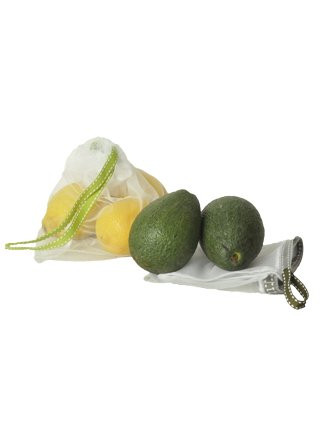

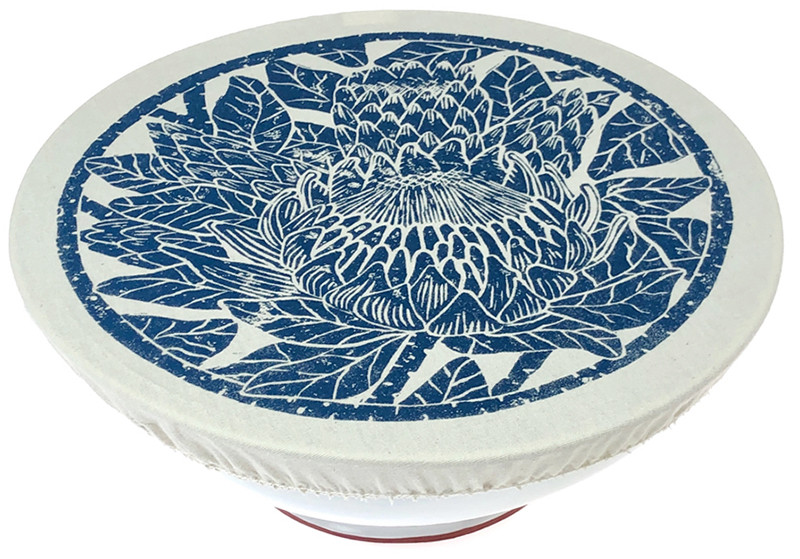
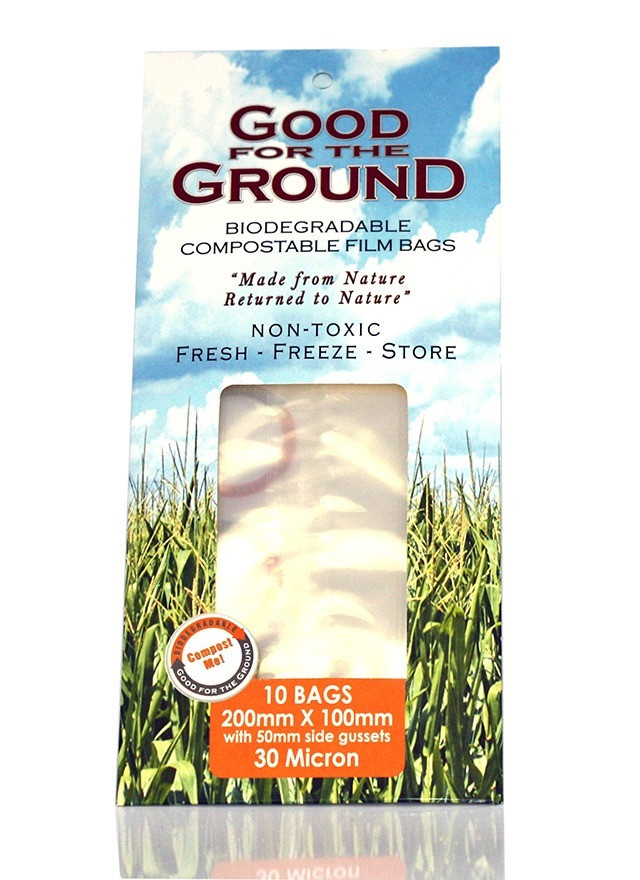


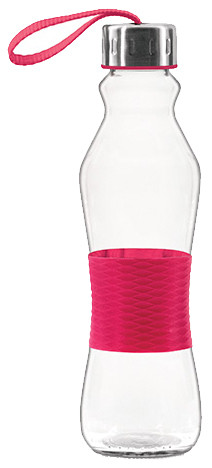


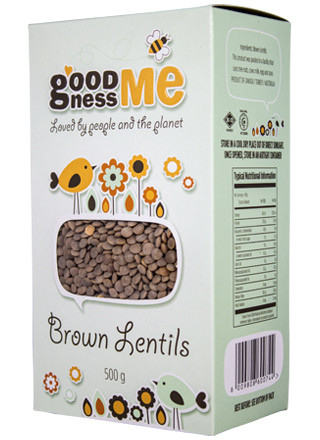




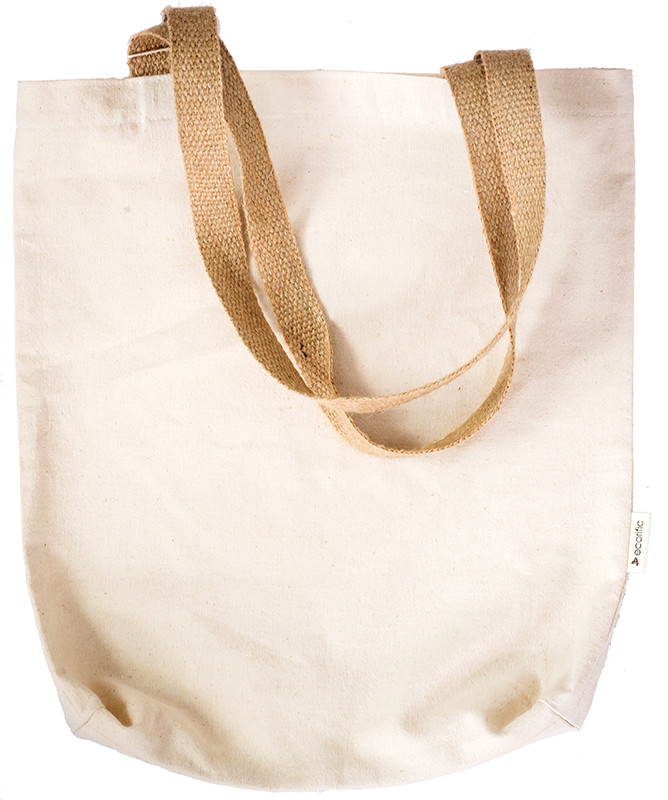
I make Bamboo straws in Thailand
Do let me know if you require more information
Hi Sonny,
Thank you for letting me know. That is wonderful to hear! Plastics straws are a major problem worldwide. It’s encouraging to hear that you are making a difference by supplying affordable bamboo straws. Are you able to supply or deliver to South Africa?